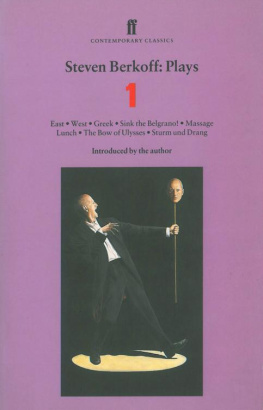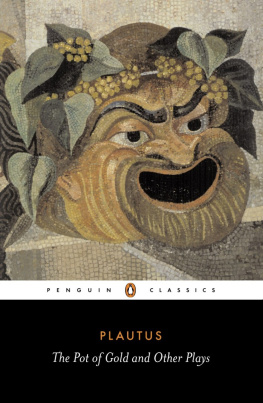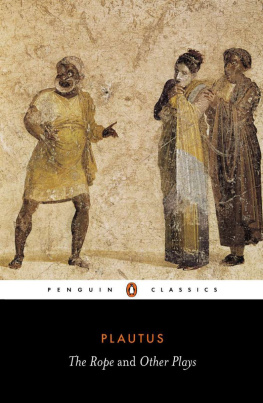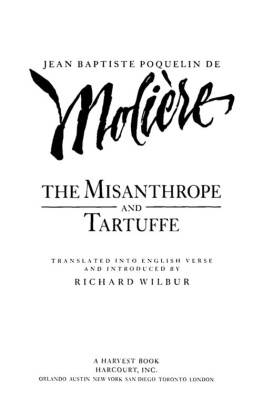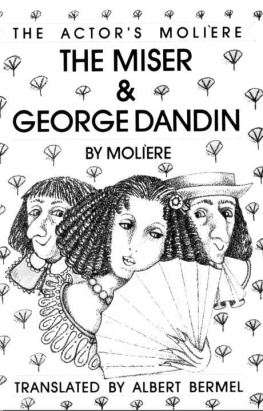
THE MISER AND OTHER PLAYS
MOLIRE was the stage name of Jean Baptiste Poquelin, the son of a wealthy merchant upholsterer. He was born in Paris in 1622. At the age of twenty-one he resigned the office at Court purchased for him by his father and threw in his lot with a company of actors to found the so-styled Illustre Thtre. The nucleus of the company was drawn from one family, the Bjarts. Armande, the youngest daughter, was to become his wife.
Failing to establish themselves in Paris, the company took to the provinces for twelve years. When they returned to the capital it was with Molire as their leader and a number of the farces he had devised as their stock in trade. Invited to perform before Louis XIV, Molire secured the Kings staunch patronage. In 1659 Les Prcieuses ridicules achieved a great success, which was confirmed by Lcole des femmes three years later. With Tartuffe, however, Molire encountered trouble; it outraged contemporary religious opinion and was forbidden public performance for several years. Don Juan also had a controversial history. Le Misanthrope, first played in 1666, is generally considered to be the peak of Molires achievement. Among the plays that followed were lAvare, Le Mdecin malgr lui, Les Femmes savantes and Le Bourgeois Gentilhomme, one of the comedy-ballets to which Lully contributed the music.
By 1665 the company had become la troupe du Roi, playing at the Palais Royal. While taking the part of Argan in Le Malade imaginaire, Molire was taken ill, and he died the same evening. The troupe survived, however, to become one of the forerunners of the Comedie-Franaise.
JOHN WOOD was born in 1900 and went to Manchester University. After some years in teaching and adult education he spent his working life in educational administration. Enthusiasm for the arts in education led to his involvement with the theatre and particularly, as a producer and translator, with the work of Molire. He also translated Beaumarchais The Barber of Seville and The Marriage of Figaro for Penguin Classics.
DAVID COWARD is Emeritus Professor of French and Senior Fellow in the University of Leeds. He has written widely on the literature and culture of France, and has translated tales by Sade and Maupassant, La Dame aux Camlias by Dumas fils and Albert Cohens Belle de Seigneur (Penguin, 1997), for which he won the Scott-Moncrieff prize for translation. He is a regular contributor to The Times Literary Supplement.
MOLIRE
The Miser and Other Plays
The School for Wives
The School for Wives Criticized
Don Juan
The Miser
The Hypochondriac
Translated by JOHN WOOD and DAVID COWARD,
with an introduction and notes by DAVID COWARD
PENGUIN BOOKS
PENGUIN BOOKS
Published by the Penguin Group
Penguin Books Ltd, 80 Strand, London WC2R 0RL, England
Penguin Putnam Inc., 375 Hudson Street, New York, New York 10014, USA
Penguin Books Australia Ltd,, 250 Camberwell Road, Camberwell, Victoria 3124, Australia
Penguin Books Canada Ltd, 10 Alcorn Avenue, Toronto, Ontario, Canada M4V 3B2
Penguin Books India (P) Ltd, 11 Community Centre, Panchsheel Park, New Delhi110 017, India
Penguin Books (NZ) Ltd, Cnr Rosedale and Airborne Roads, Albany, Auckland, New Zealand
Penguin Books (South Africa) (Pty) Ltd, 24 Sturdee Avenue, Rosebank 2196, South Africa
Penguin Books Ltd, Registered Offices:80 Strand, London WC2R 0RL, England
www.penguin.com
Published in Penguin Books 2000
Reprinted 2004
7
Don Juan and The Miser translation copyright 1953 by John Woods
The Hypochondriac translation (under the title The Imaginary Invalid)
copyright John Woods, 1959
Introduction and text revisions of the above
copyright David Coward, 2000
The School for Wives and The School for Wives Criticized translation
copyright David Coward, 2000
All rights reserved
The moral rights of the translator and editor have been asserted
The terms for the amateur or professional performance of these plays may be obtained from the League of Dramatists, 81 Drayton Gardens, London swio 9SD, to whom all applications for permission should be addressed
Except in the United States of America, this book is sold subject to the condition that it shall not, by way of trade or otherwise, be lent, re-sold, hired out, or otherwise circulated without the publishers prior consent in any form of binding or cover other than that in which it is published and without a similar condition including this condition being imposed on the subsequent purchaser
EISBN: 9780141913384
CONTENTS
INTRODUCTION
Molire, one of the worlds greatest comic playwrights, is a shadowy figure whose physical passage through this life is confirmed by little more than a few receipts and a signature which appears on fifty or so legal documents. No manuscripts of his plays have survived nor is there any extant correspondence. It is said that some time in the nineteenth century a peasant arrived in Paris with a barrowful of Molires papers which he offered for sale. There were no takers and he was never heard of again. Had there really been such a peasant and such a barrow, there would have been fewer Molires.
For while the Molire of tradition is primarily a public entertainer, scholars and historians, in the absence of firm evidence, have discovered many others lurking in his shadow. Some have suggested that Molire was merely an actor-manager who lent his name to plays written by other hands: Lord Derby, Corneille, even Louis XIV, the Sun-King. He has been identified as the original Man in the Iron Mask who became, by an amazing sequence of events, the forebear of Napoleon. While the eighteenth century thought of him as a comic scourge of men and manners, the Romantics saw a distinctly tragic side to him and played Arnolphe, Alceste and Harpagon as victims of wounded sensibilities. He has been called an embittered satirist, the defender of middle-class values and a champion of the golden mean of moderation in all things. Other admirers, unhappy with Molire simply as a man of sound common sense, have detected in him dark and dangerous philosophical convictions though, since the 1930s, actors and producers have tended to treat him not as a philosopher but as an essentially theatrical animal, a wizard of stagecraft. His comedies have been found to be indebted to literary borrowings so numerous as to turn him into a shameless plagiarist. Even his acute understanding of human psychology has worked against him: the great comedies turn out not to be plays at all but non-dramatic, abstract studies of character unnecessarily complicated by plot and, regrettably, farce.
In his day Molire had many enemies and they did not mince their words. He alienated a section of the Court, the devout party, doctors, the Faculty of Theology, not to mention rival actors and authors, who called him a public poisoner, spread slanderous rumours about his private life and tried to silence him. Against them, however, he could count on literary friends like La Fontaine, and Boileau, the arbiter of classical taste, and the protection of Henrietta of England, the Prince de Cond (who let him perform the controversial Tartuffe




